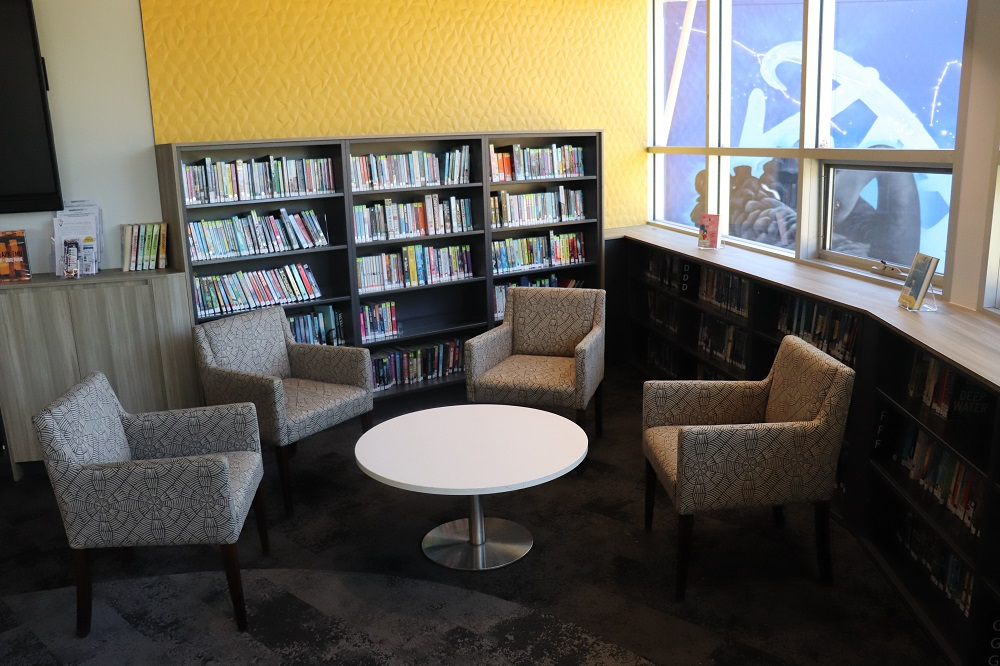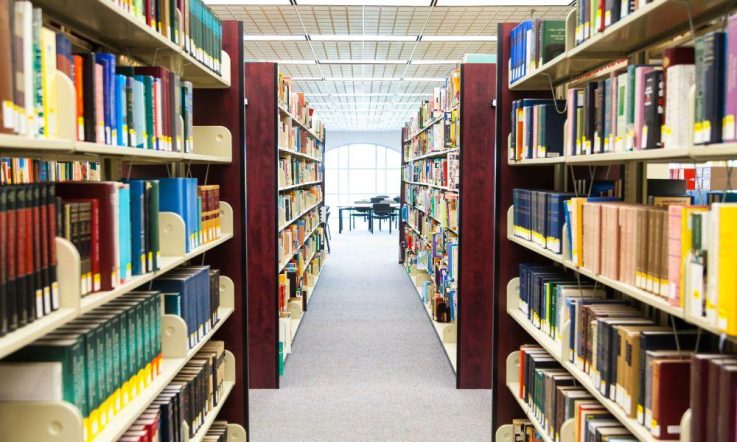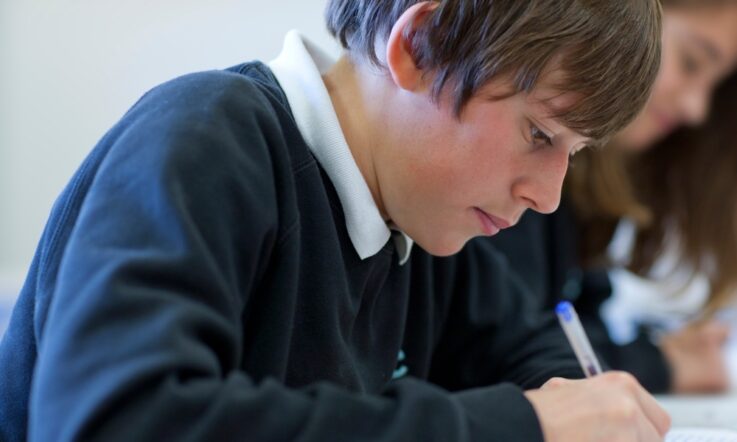At the end of last year, members of the Readers and Writers Group at Endeavour College, in South Australia, had just finished publishing a zine. Black and white copies, filled with stories written by students, were pinned up across the school.
Teacher Librarian Catherine Barnes, who coordinated the publishing project, decided she wanted to reward them for their hard work. Coincidentally, the school’s book collection needed a refresh in preparation for library upgrades.
The senior students in the lunchtime club dedicated to literature had left for the year, to prepare for their upcoming exams. So, Barnes offered the remaining year 8 and 9s in the group an excursion to Mostly Books – the local independent bookstore in nearby Mitcham.
She posed it as an initiative that would be valuable for the students and the wider school community. School leadership, who Barnes says are invested in ‘creating a culture of student agency’, gave her the green light.
Each student could select one book, that would then take its place in the library collection.
The book selection experience
The following hours were filled with ‘fiery book discussions’, bookshelf browsing and the curation of a new, student-led collection of titles. Barnes tells Teacher students were treated with respect, their literary opinions were valued, and their reading preferences were honoured. They had ‘the opportunity to find something that resonated with them.’
As Barnes coordinated the excursion, the power of giving students this agency stood out. They were guided by the expertise of the booksellers, but not directed, and the excursion became a way to celebrate the uniqueness of their reading tastes.
‘They were independent, and the bookseller didn’t treat them as children, she treated them as equals,’ she says.
After the titles had been selected and purchased, Barnes took her students to the adjacent café, to complete the excursion with a hot chocolate. ‘The cutest part of it was some of them had never ordered in a café, so they shared that with me, and I said, “well, this is what you’re going to do now.”’
Student agency and books that resonate
Barnes is dedicated to creating a student-driven reading environment at the college. The bookstore excursion is one of many efforts she makes to encourage students to read independently and for pleasure. By listening to what young people want to read, she finds books that represent the diversity of the students.
‘[I think student agency in reading can be] one of the most powerful things, particularly in Australia, where we are quite multicultural.
‘Looking at some of the novels that are studied traditionally in the English Curriculum, they don't really resonate with a lot of students who are first generation or even second generation [Australians]. That's not their story, that's not the story of their family, and so having these opportunities for the students to have agency in [selecting] the novels in the library and the novels in our Curriculum, has really helped with engagement.
‘We have quite a diverse, multicultural student cohort, so reading another Catcher in the Rye doesn't really resonate with the majority of our students. [Often], the book doesn't represent them, doesn't represent their friends or represent their community, and the opportunity to be able to find something that resonates with them beyond my little bookshelves and beyond the English Curriculum is really powerful for these students.’
Critical and creative thinking
Barnes, who is currently a Schools Library Advisory Committee Member at ALIA (the Australian Library and Information Association), is dedicated to creating an environment where students want to read and goes to great lengths to achieve this.
She has pioneered several student-led programs, including Book Club, an initiative where students in year 9 can chose a book to study from a curated list, all differing in themes, complexity and topics.
Giving students the choice to read what they want alongside recommended texts for the Curriculum, can be a powerful engagement tool. Barnes stresses the importance of understanding teenage reading reluctance as an issue of what books students are exposed to. Rather than concede that certain students just ‘don’t like reading’, she looks for ways to encourage each individual student to find something meaningful in literature.
A byproduct of students being treated as individuals has been blossoming critical and creative thinking. ‘It's beyond the curriculum, which is actually really powerful, because there's no assessment attached, no marks.’
‘The English teacher and I, who run [the Readers and Writers Group], are not looking at the curriculum, and so the students are more open to be creative and to think critically because they're not trying to look for “how do I get an A?”’
The way Barnes has approached reading with students has led them to become curious, avid readers, who seek out extracurricular opportunities. The Readers and Writers Group is evidence of this: an enthusiastic, weekly congregation that have found the joy in literature. Barnes and the school leadership see the upside of extracurricular activities like the bookstore excursion.
‘When someone comes back from winning a football game for the school, we praise them, and we talk about it. So, for this, we just set up a display and said, “new books chosen by your classmates,”’ Barnes says,
‘We celebrated that these books were chosen by their peers, which meant that other students thought “oh, that might be something I’m kind of interested in”, because a peer chose it, not an English teacher or the librarians.’
Continuing to foster a community of enthusiastic young readers was the motivation behind Barnes’ excursion. Promoting a student-led reading culture, that focuses on what young people want to read, rather than what they must read, is the backbone of Endeavour College’s library program.
Going to the bookstore and allowing the students to select a book of their choice has been a way of personalising the learning experience.
Editor's note: This article was updated on 16 April 2024 to clarify that the image is of Endeavour College Library.
Reading is always a part of the curriculum, but how can teachers encourage students to make it a lifelong habit and something that they enjoy?
On your own, or with a group of colleagues, reflect on how you support your students in their reading and how Catherine Barnes’ work could be relevant to your own school library and English program.
Do you allow students time to read for pleasure? Do you allow students to choose their own books for the school or classroom library?



